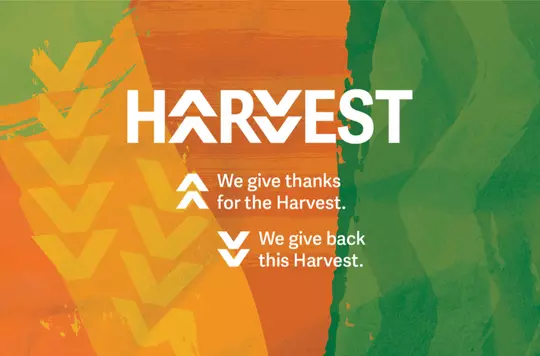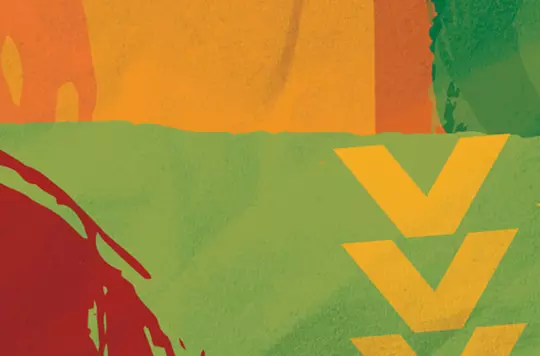28 September 2024
It's time to celebrate!
Major Graham Mizon
Major Graham Mizon explores the significance of the Feast of Tabernacles.
Key text
Our family is celebrating five significant birthdays in 2024. We also have other family accomplishments to honour – getting a new job, sitting exams, taking a driving test and welcoming a new baby into the family. The year is turning into one long celebration!
We read in the Bible that Jewish families also knew how to celebrate. Leviticus 23 lists seven annual festivals that are to be observed: Passover (vv4 and 5), Unleavened Bread (vv6–8), Firstfruits (vv9–14), Weeks, or Pentecost (vv15–21), Trumpets (vv23–25), Atonement (vv26–32) and Tabernacles (vv33–43). After the return of the Jews from Babylonian exile, two more festivals were introduced: Dedication, or Lights (see John 10:22 and 23) and Lots (see Esther 9:20–22).
Pause and reflect
- What Christian festivals and corps events do we recognise today?
- What do they mean for us as Christians?
The celebrations above recall the Lord’s goodness and protection. Jesus, his disciples and many first-century Christians were Jews and would have also celebrated them. Luke records that ‘every year Jesus’ parents went to Jerusalem for the Festival of the Passover’ (Luke 2:41). These many festivals would form a large part of the lives of Jews in New Testament times. Surprisingly, 75 per cent of the events related in John’s Gospel occur before, during or immediately following one of the feasts.
The Festival, or Feast, of Tabernacles was instituted by Moses and observed in the Hebrew month of Tishri (September to October). It is also known as the Feast of Booths (see Leviticus 23:42) or Ingathering (see Exodus 23:16). It is a joyful, celebratory occasion.
The rituals enacted draw out some important themes. Of particular interest to us is that they also point to Jesus – and beyond. We can learn much today from this 3,500-year-old festival.
On the Feast of Tabernacles, the Lord requires the Israelites to bring offerings of grain, food and drink. These were in addition to the gifts and offerings that would ordinarily be given on the Sabbath (see Leviticus 23:37 and 38). Furthermore, they were required to ‘celebrate the Festival of Harvest with the firstfruits of the crops you sow in your field’ and, later, ‘the Festival of Ingathering at the end of the year, when you gather in your crops from the field’ (Exodus 23:16).
Pause and reflect
- Consider how we celebrate Harvest today.
- How important is the Army’s second doctrine that acknowledges God as ‘the Creator, Preserver, and Governor of all things’?
The English word ‘tabernacle’ is derived from the Latin tabernaculum meaning ‘booth’ or ‘shed’. The Hebrew word mishkan, used here, means ‘residence’ or ‘dwelling place’.
During the Feast of Tabernacles all Israelites were required to live outdoors in booths or tents, as did their ancestors as they wandered in the wilderness during the Exodus years.
Later, God gave instructions to Moses to build a large tent – ‘a tabernacle of meeting’ (Exodus 31:1–11) – where God would reside. This is God dwelling with his children as they journeyed for 40 years to the land God had promised them.
It is significant, then, that John commences his Gospel by announcing that the advent of Jesus was nothing less than God being with us, and that he chose to use the Greek word skenoo, meaning ‘dwelling’: ‘The Word became flesh and made his dwelling among us’ (1:14).
A more literal rendition of this word would be ‘made his home’, ‘pitched his tent’ or ‘tabernacled’ among us. In the same way that the tent in Moses’ day encompassed the living and abiding presence of God, the incarnate Christ brought God to his people.
In a further link to this festival, Paul writes: ‘Christ has indeed been raised from the dead, the firstfruits of those who have fallen asleep’ (1 Corinthians 15:20). The harvest would be complete when Jesus is resurrected and through his death and resurrection would be the life-giver to all who die in Christ.
Every morning of the feast, a water- libation ceremony would take place. A priest would fill a large golden pitcher with water from the Pool of Siloam, just south of the Temple Mount. As the priest passed through the Huldah Gates, there would be a blast from the silver trumpets and the celebrants would chant texts such as ‘with joy you will draw water from the wells of salvation’ (Isaiah 12:3).
The Festival of Tabernacles focuses on the time after the Exodus when God provided water for the Israelites out of a rock. Even though they were wandering in the desert, God had not forgotten them. God was not only dwelling with them, he also provided for them: manna, water, and clothes and sandals that didn’t wear out (see Deuteronomy 8:15 and 16; 29:5).
Pause and reflect
- Meditate on these words: ‘Come, occupy my silent place,/ And make thy dwelling there!/ More grace is wrought in quietness/ Than any is aware’ (SASB 777).
- Consider James 1:18: ‘He chose to give us birth through the word of truth, that we might be a kind of firstfruits of all he created.’
John records the gripping account of the last time Jesus journeyed to Jerusalem for the Festival of Tabernacles, and the great invitation he gave, echoing Isaiah 55:1 – ‘Let anyone who is thirsty come to me and drink. Whoever believes in me, as Scripture has said, rivers of living water will flow from within them’ (John 7:37 and 38).
Ultimately, however, the prophecies depicted in the festival will be fulfilled when Jesus returns. Zechariah 14 foretells the reconciliation of all peoples when God will unify all in holiness.
Bible study by

Major Graham Mizon
Retired Officer, Burntwood
Discover more

Resources and ideas for your Harvest offering. This year's theme focuses on giving thanks to God at Harvest and giving back through our financial offering.



